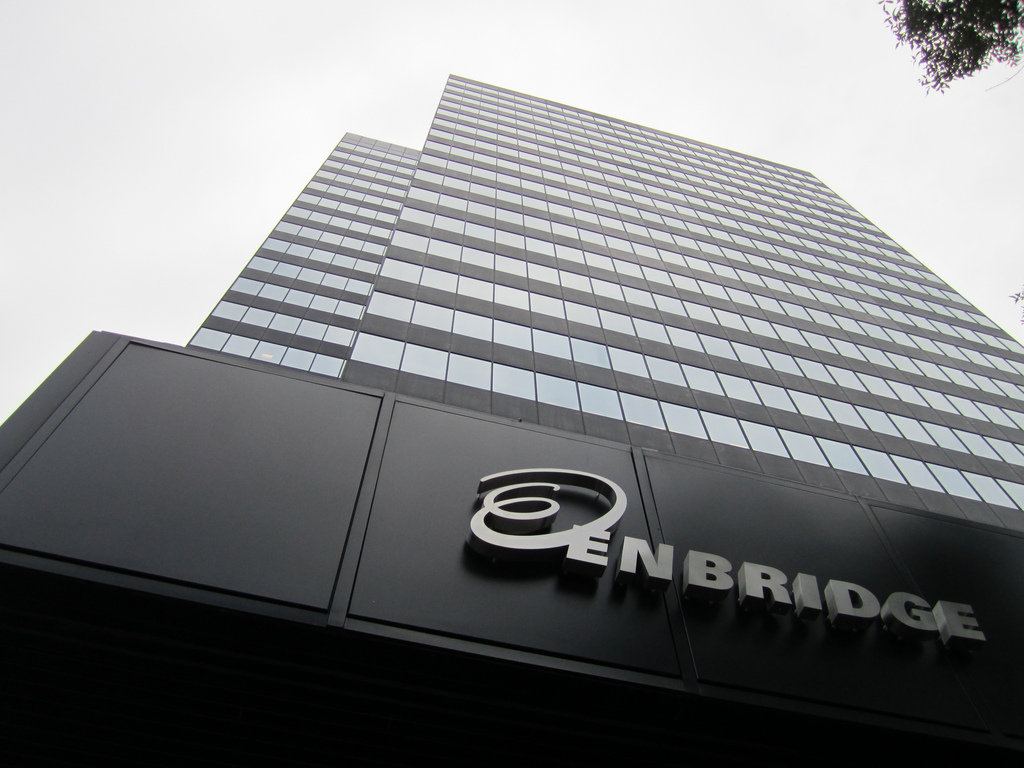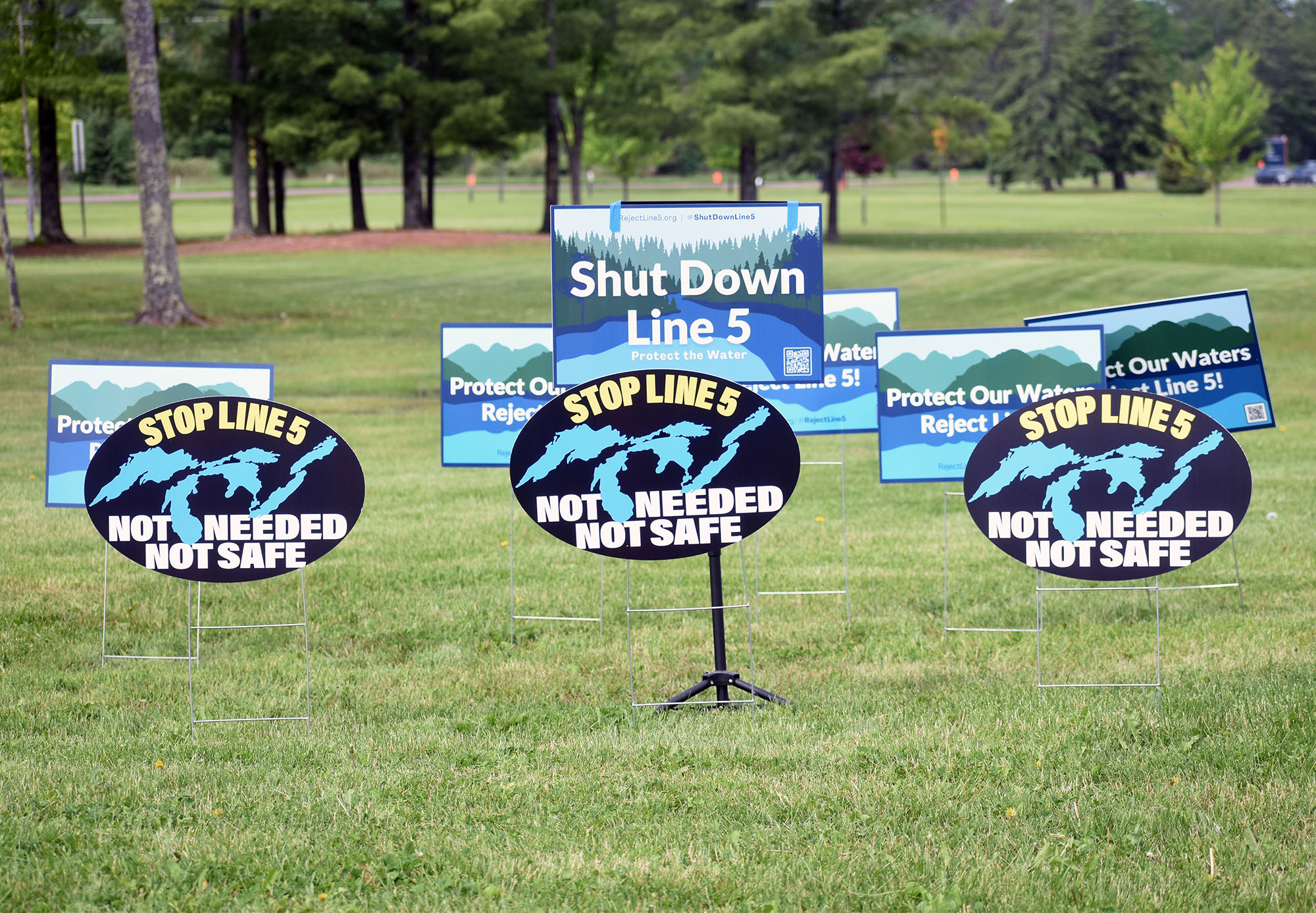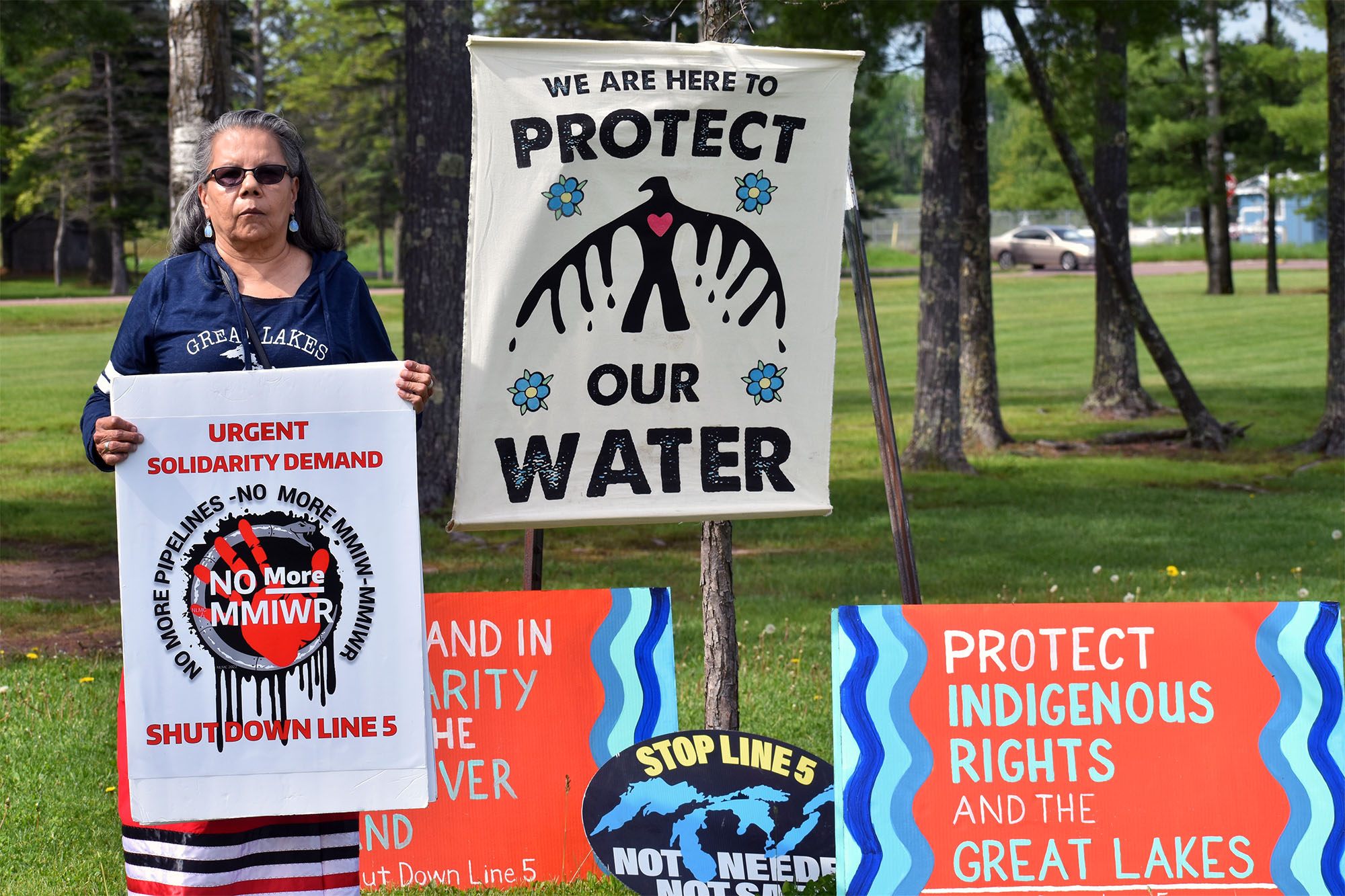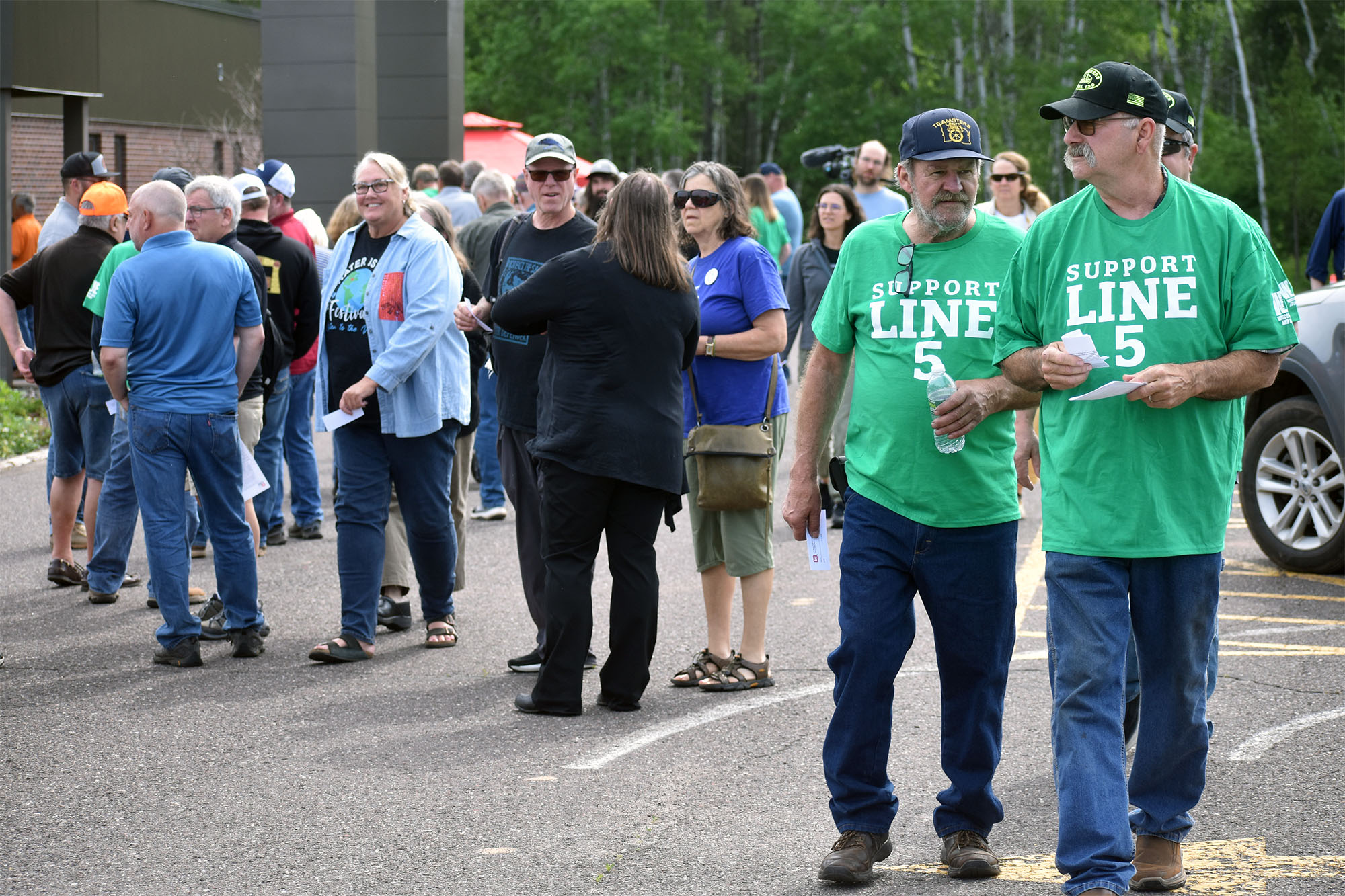Canadian energy firm Enbridge Inc. said it’s open to rerouting a 66-year-old pipeline outside of a northern Wisconsin tribe’s reservation. Enbridge said in a statement Thursday that it’s “surprised and disappointed” by the Bad River tribe’s legal action.
The Band River Band of Lake Superior Chippewa filed a federal lawsuit this week to shut down operation of Enbridge’s Line 5 through its reservation. Tribal leaders say changing river conditions threaten to expose or rupture the pipeline.
The tribe decided not to renew easements on some tracts of land for the pipeline two years ago.
Stay informed on the latest news
Sign up for WPR’s email newsletter.
Line 5 carries up to 540,000 barrels of natural gas liquids and crude oil per day from Superior to Sarnia, Ontario.
“Our main focus is the safe operation of our pipeline system and we take that responsibility very seriously. Maintenance along Line 5 is essential to safe operation, and we’re pleased that the Band has committed to continuing to support our maintenance activities,” said Brad Shamla, vice president of U.S. operations for Enbridge in a statement. “We are open to continued collaboration to address the Band’s concerns while we explore options to route the line outside of the Reservation.”
However, Bad River Tribal Council Member Dylan Jennings responded, saying they want the pipeline out of the watershed.
“If it was rerouted directly outside of the reservation, it would still impact water resources so we’re opposed to that as well,” said Jennings.
In the company’s statement, Enbridge’s Shamla said they’ve been successful in establishing trust along their pipelines “based on respect for the environment and tribal communities.”
Jennings said Thursday he doesn’t see evidence of the company’s efforts to build trust.
“That was something that we found very ironic given that this week we’re currently at the nine year anniversary of the Kalamazoo oil spill,” he said.
A spill from Enbridge’s Line 6B caused more than 800,000 gallons of oil to flow into the Michigan’s Kalamazoo River on July 26, 2010. The spill cost the company more than $1 billion to clean up.
Yet Enbridge said Line 5 has operated safely through the tribe’s reservation and maintains that the pipeline provides vital energy resources to northern Wisconsin and Michigan.
Jennings pointed to a study by London Economics International, which was commissioned by the National Wildlife Federation, that found alternative methods of transporting crude oil would cost around $1.31 per barrel more than using Line 5. The report said the cost increase “would be lost in the noise of typical crude oil price volatility.”
Another Line 5 alternatives analysis commissioned by the state of Michigan found moving products by truck or barge was not viable or feasible. Although, it noted that rail transportation was the most practical and cost-effective of the three alternatives.
Enbridge is also under pressure in Michigan to shut down its aging Line 5 after the state’s administration took legal action last month to decommission its dual pipelines running through the Straits of Mackinac.
Wisconsin Public Radio, © Copyright 2025, Board of Regents of the University of Wisconsin System and Wisconsin Educational Communications Board.




